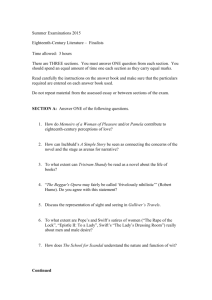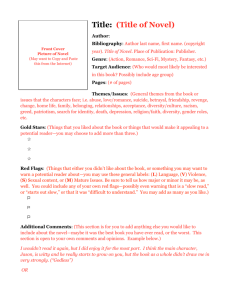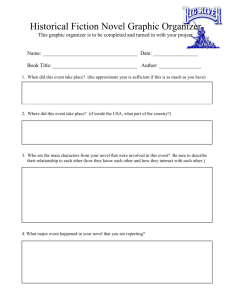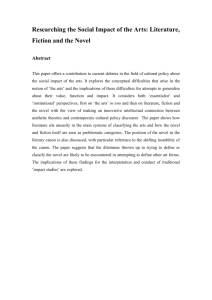Reading and requirements
advertisement
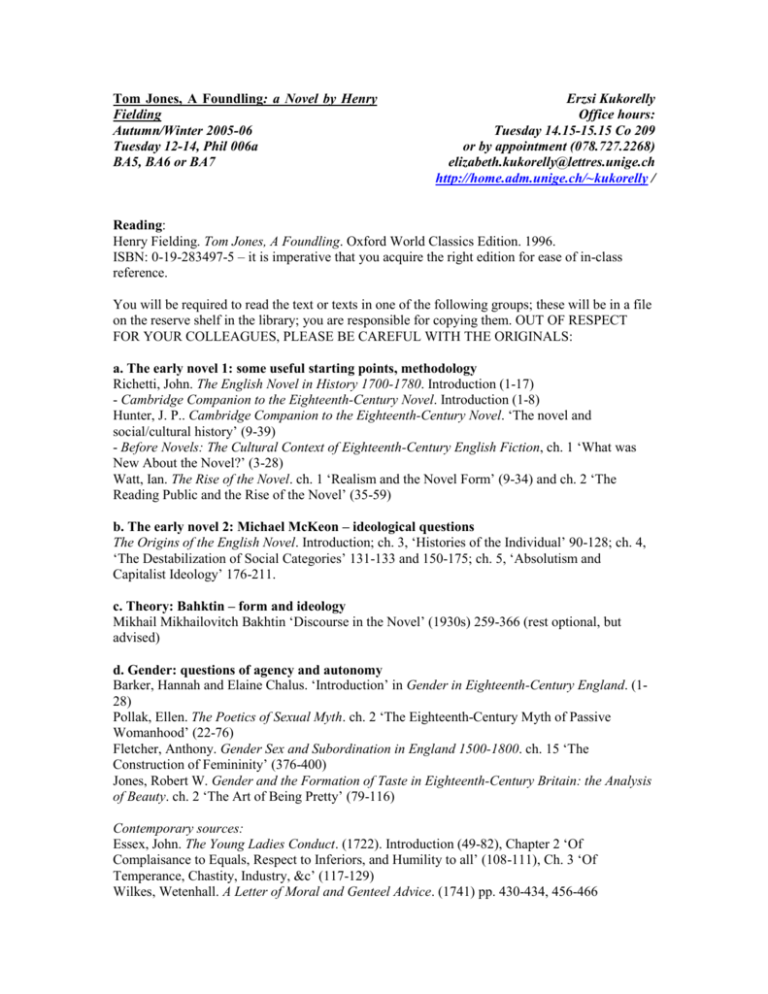
Tom Jones, A Foundling: a Novel by Henry Fielding Autumn/Winter 2005-06 Tuesday 12-14, Phil 006a BA5, BA6 or BA7 Erzsi Kukorelly Office hours: Tuesday 14.15-15.15 Co 209 or by appointment (078.727.2268) elizabeth.kukorelly@lettres.unige.ch http://home.adm.unige.ch/~kukorelly / Reading: Henry Fielding. Tom Jones, A Foundling. Oxford World Classics Edition. 1996. ISBN: 0-19-283497-5 – it is imperative that you acquire the right edition for ease of in-class reference. You will be required to read the text or texts in one of the following groups; these will be in a file on the reserve shelf in the library; you are responsible for copying them. OUT OF RESPECT FOR YOUR COLLEAGUES, PLEASE BE CAREFUL WITH THE ORIGINALS: a. The early novel 1: some useful starting points, methodology Richetti, John. The English Novel in History 1700-1780. Introduction (1-17) - Cambridge Companion to the Eighteenth-Century Novel. Introduction (1-8) Hunter, J. P.. Cambridge Companion to the Eighteenth-Century Novel. ‘The novel and social/cultural history’ (9-39) - Before Novels: The Cultural Context of Eighteenth-Century English Fiction, ch. 1 ‘What was New About the Novel?’ (3-28) Watt, Ian. The Rise of the Novel. ch. 1 ‘Realism and the Novel Form’ (9-34) and ch. 2 ‘The Reading Public and the Rise of the Novel’ (35-59) b. The early novel 2: Michael McKeon – ideological questions The Origins of the English Novel. Introduction; ch. 3, ‘Histories of the Individual’ 90-128; ch. 4, ‘The Destabilization of Social Categories’ 131-133 and 150-175; ch. 5, ‘Absolutism and Capitalist Ideology’ 176-211. c. Theory: Bahktin – form and ideology Mikhail Mikhailovitch Bakhtin ‘Discourse in the Novel’ (1930s) 259-366 (rest optional, but advised) d. Gender: questions of agency and autonomy Barker, Hannah and Elaine Chalus. ‘Introduction’ in Gender in Eighteenth-Century England. (128) Pollak, Ellen. The Poetics of Sexual Myth. ch. 2 ‘The Eighteenth-Century Myth of Passive Womanhood’ (22-76) Fletcher, Anthony. Gender Sex and Subordination in England 1500-1800. ch. 15 ‘The Construction of Femininity’ (376-400) Jones, Robert W. Gender and the Formation of Taste in Eighteenth-Century Britain: the Analysis of Beauty. ch. 2 ‘The Art of Being Pretty’ (79-116) Contemporary sources: Essex, John. The Young Ladies Conduct. (1722). Introduction (49-82), Chapter 2 ‘Of Complaisance to Equals, Respect to Inferiors, and Humility to all’ (108-111), Ch. 3 ‘Of Temperance, Chastity, Industry, &c’ (117-129) Wilkes, Wetenhall. A Letter of Moral and Genteel Advice. (1741) pp. 430-434, 456-466 Seminar Goals: 1. to read, understand and enjoy Tom Jones. 2. to become familiar with some of the main issues involved in the emergence of the novel genre in the early eighteenth century. Desired Learning Outcome: The strengthening of critical autonomy, in the pursuit of literary praxis. Absence policy: If you are absent more than two times, you must present a valid excuse. Regular absenteeism may preclude your gaining credit for this seminar. Requirements: 1. regular attendance of and active participation in class. 2. doing the reading assignments on time; annotating and interacting with your text; bringing your text to class. 3. participating in one of the working groups on theory and history. Each group will coordinate to present the salient points of the texts they read to the class, and will produce a handout (with an outline, quotations and page references) that will be posted on the class internet page. In addition, they will analyze three passages from Tom Jones, applying what they have learned from the other texts. N.B. Each member of the group has to read all the texts. 4. giving a mini oral report on the week’s reading (5-8 minutes max). 5. fulfilling the written assignments, in accordance to your credit needs. Please refer to the handout on the class internet page for procedure to follow. 6. preparing exams in conjunction with teacher. Please refer to the class internet page for procedure to follow.
